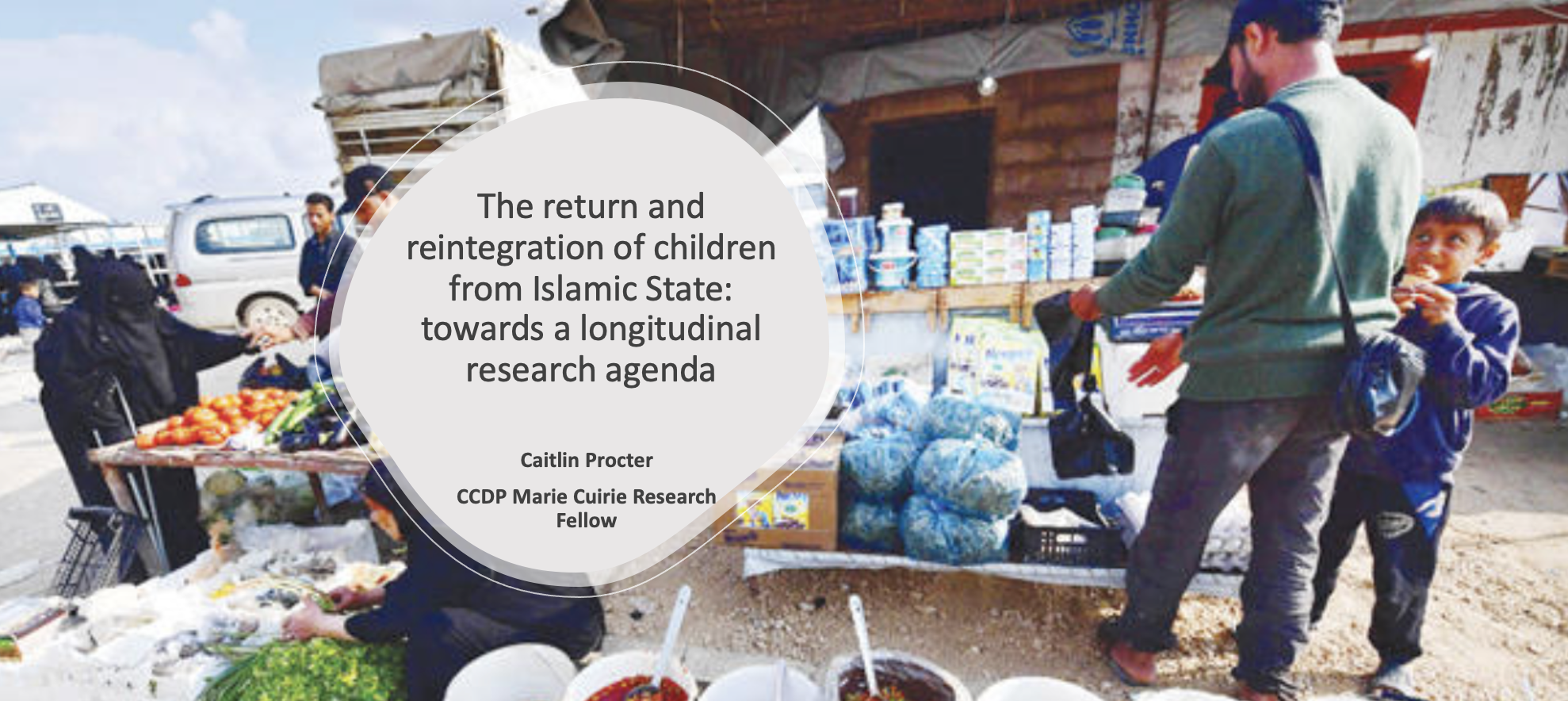Post-conflict return and reintegration
Reintegration from Armed Conflict (REACT)
ERC funded Marie Curie Fellowship - Geneva Graduate Institute (2023-2025)
To what extent can male and female youth engaged in armed conflict be reintegrated to their communities? Is this a desireable outcome for young people, and what happens when reintegration fails? This project is grounded in two case studies: Tunisia and north-east Syria. It includes research in the closed detention camp of Al Hol, and examines experiences of (re)integration of Syrian youth and their families to Der Ezzor and Raqqa; and of Tunisian young people who left Tunisia and lived under Islamic State. The project is ethnographically informed, and includes partnerships with Save the Children's Syria Research Office and IMPACT CSRD.
Reintegration challenges for returnees from Al Hol Camp
(with Sinéad Barry)
IMPACT CSRD Policy Report (2024)
Thousands of women and children have returned from Al-Hol Camp to different places in Syria since 2019. IMPACT, among other organizations, provide support to women and children who leave Al-Hol. There is little known about the post return circumstances and challenges these women and children face, and more importantly, any assessment of the perceived usefulness of the reintegration programs delivered to them. This study contributes to filling this gap. Reintegration is understood here not an end goal, but instead as a step in a wider process of social cohesion and material welfare building. From this perspective, this study is guided by two interrelated questions: What challenges are exclusive to returnees from al Hol to the Northeast, in comparison to the residents of Northeast; and what is the perceived effectiveness of existing activities delivered to returnees? Research was conducted in two locations in Deir Ezzor: Hajin and Kasra, and the results reveal important findings and distinctions between the two sites.
Beyond the Security-Safeguarding Nexus: Alternative Methods for Responding to Young Returnees from Islamic State
(with Richard McNeil-Willson)
Article under review
This article examines existing and alternative theoretical approaches for understanding European state responses to minors returning from Islamic State, to consider how differing bodies of literature can support the development of more effective and less discriminatory models of analysis and response. It offers an overview of the existing limitations within analysis and implementation of current Western approaches towards young returnees – including problems in determining the categorisation and agency of young people involved in seeking repatriation from former Islamic State territory. We argue that there is currently a “security-safeguarding nexus” in counterterror policy, developed, in part, due to growth of concern over young returnees from Islamic State. Within this nexus, the language of “safeguarding” has reinforced securitisation, which leads to the implementation of contradictory legislative approaches that ultimately degrade fundamental children’s rights. Drawing on scholarship from critical terrorism studies, migration studies and youth disengagement from conflict zones, we consider how alternative frameworks might help to tackle the problems implicit within the security-safeguarding nexus, as well as highlighting where future research might be best orientated.
